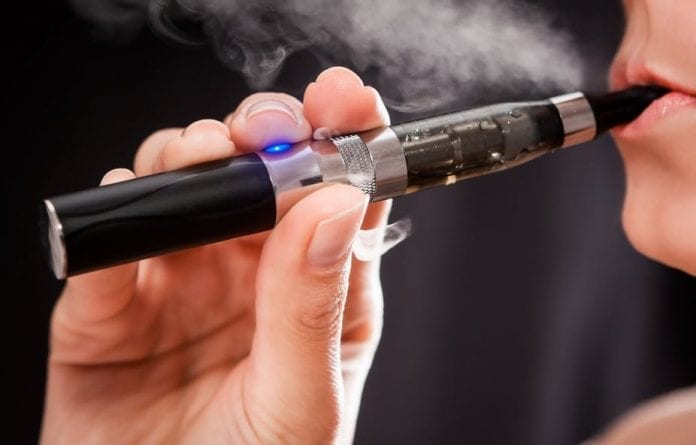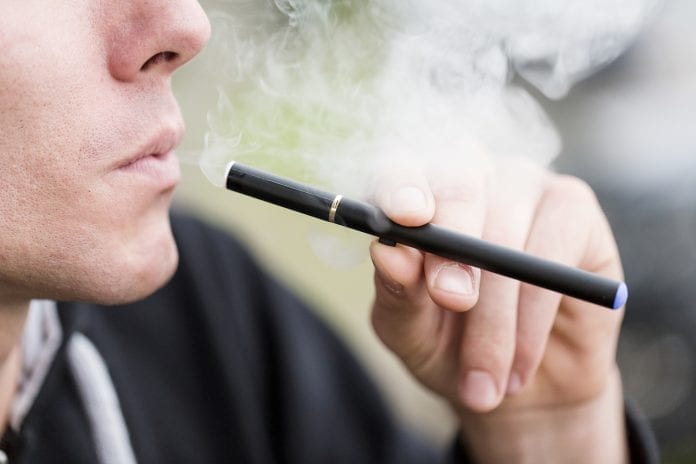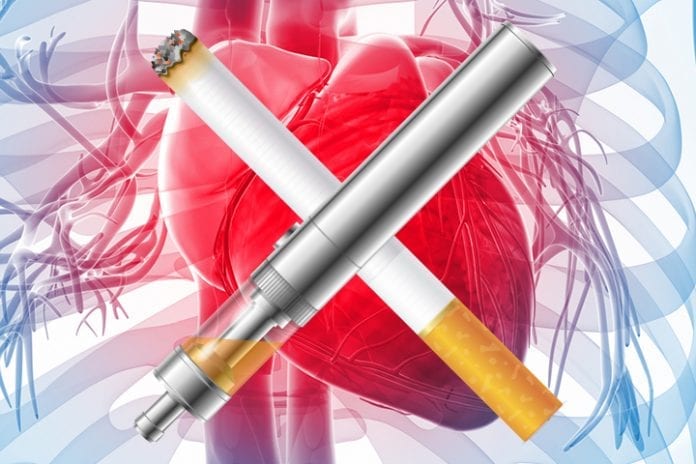E-cigarette aerosols do not contain any harmful substances from tobacco smoke, but they are not safe. Most e-cigarettes provide nicotine, which is highly addictive and can damage the developing brain, especially women who vape during pregnancy. Besides nicotine, e-cigarette vapors contain chemicals that have been linked to serious lung disease and cancer – and chemicals such as benzene and formaldehyde.
Since e-cigarettes also contain many of the same toxic chemicals, there is no reason to believe that they significantly reduce the risk of disease. There are no long-term studies to support the claim that e-cigarette vaping is less harmful than conventional smoke and that users inhale toxic pollutants.

E-cigarettes were only recently introduced in the US, and some cancers, such as lung cancer, heart disease, and lung cancer, take years to develop.
It is almost impossible to determine whether these products increase a person’s risk of cancer before they are on the market for at least 15-20 years.
FDA studies have shown that e-cigarettes do not contain the same toxic chemicals as regular cigarettes because they do not contain tobacco. Unfortunately, many people, including teenagers, feel that these cigarettes are safe and that they help people quit smoking. There is no long-term study of the long-term health effects of e-cigarettes to determine harm.
The cause is a combination of factors, such as the use of e-cigarettes in combination with other tobacco products, smoking habits, and other factors.

While tobacco smoking has long been clearly linked to cancer, and e-cigarettes are still unregulated, the health risks of vaping are beginning to be understood. A report by Greek researchers has found that the use of e-cigarettes causes more than twice the risk of cancer than smoking cigarettes. The report by researchers from the University of Athens, Greece, and leading tobacco companies found samples containing high levels of nicotine and other dangerous chemicals, including diethylene glycol, which is found in antifreeze.
The WHO has warned of the dangers that e-cigarettes can pose and of the use of tobacco products in general.
E-cigarettes are devices that allow people to inhale nicotine through vapor rather than smoke. Also known as “vape cigs,” they are far less harmful than cigarettes and can help you quit smoking for good. You can learn more on blackbuffalo.com. In recent years, e-cigarettes have become a very popular anti-smoking tool in the UK.

E-cigarettes do not produce as much smoke as cigarettes, burn tobacco, or produce the same amount of carbon monoxide as tobacco cigarettes or smokeless tobacco. E-cigarettes do not produce more smoke than cigarettes (or any other form of tobacco smoke) and are not manufactured by the tobacco industry or the US Food and Drug Administration.
The liquid-vapor does not contain any of the potentially harmful chemicals found in tobacco cigarettes, smokeless tobacco, or other forms of tobacco smoke. Almost all the damage from smoking is caused by nicotine and other chemicals, many of which are toxic, but almost no harm from vapors.
Nicotine replacement therapy has been widely used for many years to help people quit and is a safe treatment. E-cigarette products damage the lungs and may be safer than smoking cigarettes, according to a new long-term study published this week by the National Institute for Health and Care Excellence (NICE).
Health researchers are therefore concerned about the long-term health effects of e-cigarette use. Based on the study, published Monday in the American Journal of Preventive Medicine, researchers found that e-cigarette users who were followed for three years had a higher risk of developing respiratory diseases than people who did not use tobacco. However, the same study found that smokers who used vaping and cigarettes exhibited the riskiest behaviors, which researchers say is common.

Nicotine, which is present in most e-cigarettes, is highly addictive, affects brain development, and is a potential cancer killer, but there are no known harms that are less or even less than those in cigarettes.
Some believe that e-cigarettes could help reduce the nicotine cravings of those trying to quit, and some do. The vast majority of smokers start at a certain age, but young people who use nicotine products in all forms, including e-cigarettes, are uniquely exposed to the risk of long-term effects. Nicotine in e-cigarettes should certainly not be consumed by anyone under the age of 25, nor should it be smoked.
There are seven FDA-approved stop aids that have been shown to be safe and can be effective if used as prescribed. It should be noted that e-cigarettes are not included and that long-term quitting should not be prohibited for anyone under 25 or for any other age group.
According to the American Heart Association (AHA), many people believe that vaping is safer than smoking, but that is not necessarily the case. Many people believe e-cigarettes are safer for smokers than tobacco cigarettes, according to a recent study.









